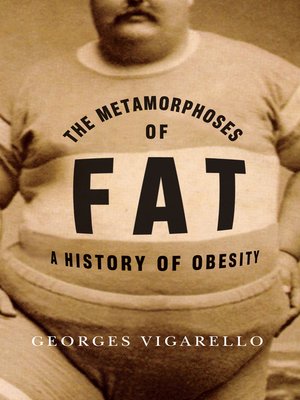The Metamorphoses of Fat
ebook ∣ A History of Obesity · European Perspectives: a Series in Social Thought and Cultural Criticism
By Georges Vigarello

Sign up to save your library
With an OverDrive account, you can save your favorite libraries for at-a-glance information about availability. Find out more about OverDrive accounts.
Find this title in Libby, the library reading app by OverDrive.



Search for a digital library with this title
Title found at these libraries:
| Library Name | Distance |
|---|---|
| Loading... |
Georges Vigarello maps the evolution of Western ideas about fat and fat people from the Middle Ages to the present, paying particular attention to the role of science, fashion, fitness crazes, and public health campaigns in shaping these views. While hefty bodies were once a sign of power, today those who struggle to lose weight are considered poor in character and weak in mind. Vigarello traces the eventual equation of fatness with infirmity and the way we have come to define ourselves and others in terms of body type.
Vigarello begins with the medieval artists and intellectuals who treated heavy bodies as symbols of force and prosperity. He then follows the shift during the Renaissance and early modern period to courtly, medical, and religious codes that increasingly favored moderation and discouraged excess. Scientific advances in the eighteenth century also brought greater knowledge of food and the body's processes, recasting fatness as the "relaxed" antithesis of health. The body-as-mechanism metaphor intensified in the early nineteenth century, with the chemistry revolution and heightened attention to food-as-fuel, which turned the body into a kind of furnace or engine. During this period, social attitudes toward fat became conflicted, with the bourgeois male belly operating as a sign of prestige but also as a symbol of greed and exploitation, while the overweight female was admired only if she was working class. Vigarello concludes with the fitness and body-conscious movements of the twentieth century and the proliferation of personal confessions about obesity, which tied fat more closely to notions of personality, politics, taste, and class.







